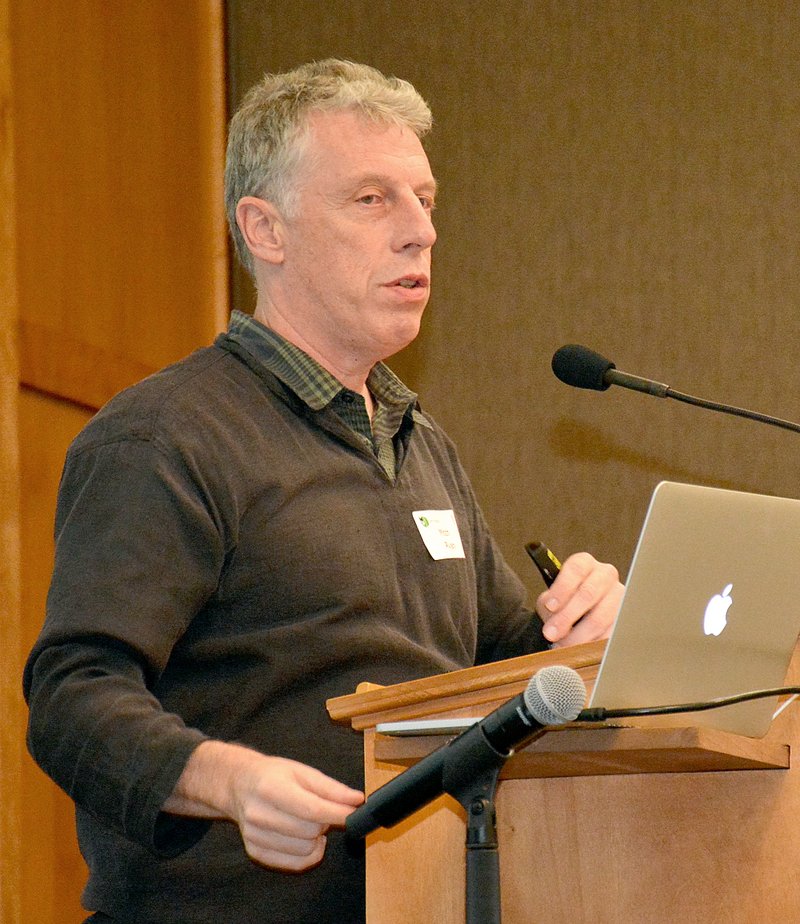Earth Mission Asia, a Siloam Springs based nonprofit, is making a big impact on Myanmar, also known as Burma, through medical education.
The nonprofit is focused on training physicians' assistants from the Karen (pronounced Kuh-ren) people group, who then return to their home communities' remote jungle areas to provide much needed health care. A fundraiser for the organization was held on Oct. 16 at Simmons Great Hall.
Earth Mission Asia is also developing an engineering training program in Burma and the larger Earth Mission organization, established in 1982 by L.D. and Sue Ryan, is doing projects in other parts of the world. However, the fundraiser focused on the work being done in medical education in Myanmar.
Dr. Mitch Ryan, Earth Mission Asia program director, was the keynote speaker at the event and his wife, Caryl Ryan, administration and finance director, was a special guest. Dan Ryan, owner of Siloam Springs-based Ryan Engineering, is the CEO of Earth Mission Asia.
Dr. Ryan said the Karen people live in a remote area impacted by a civil war that has been going on for more than 60 years. A peace agreement was reached in 2016, enabling Earth Mission Asia to establish a clinic and medical training program.
The students who are recruited to participate in the program generally have about the equivalent of a 10th-grade education, Dr. Ryan said. Students spend their first year of the training program in Chaing Mai, Thailand, concentrating on the fundamentals of education, such as math, science and English.
"The reason we use English is that English gives you access to a lot of information," he said. "Online, there are all kinds of English resources for all kinds of medical levels. It also gives them the ability to get consultation with English-based speakers, even a lot of other countries use English in their basic training programs."
The second and third year of the training program is spent in Kyaukkyi, Myanmar, where students study in a clinical setting. During the fourth and fifth year of the program, they return to the remote clinic to do an internship focused on jungle medicine.
Practicing medicine in the jungle offers unique challenges, Dr. Ryan said. Students need to be able to think critically to solve problems with limited equipment and resources. They also frequently work on their own, and have to combine the diagnostic skills of a physician with nursing and lab tech skills.
"Where we (in the U.S.) would specialize into different areas, these guys have to know all of it," Dr. Ryan said.
Students are trained to diagnose and treat common problems and connect patients with more complex cases to outside resources. Common causes of death for children in the area are easily treated conditions such as pneumonia and diarrhea, Dr. Ryan said. Other infectious diseases, such as typhus, typhoid, leptospirosis, dengue and malaria are very different from the common diseases doctors in the U.S. treat.
Currently, the program has about 10 students enrolled in each year of the five year program, Dr. Ryan said. The entire program is designed to encourage students to go back to their home communities and practice medicine.
"Traditionally, all over the world, there have been problems getting health care into remote areas, even here in the U.S. that's been true. ... Kind of the accepted universal truth is that if you get people from those areas they are more likely to go back, and if you train people in rural areas ... they are more likely to stay there," Dr. Ryan said.
One of the future goals of the program is to develop a curriculum specific to the area of need and package it to offer it to other nonprofits serving other people groups. There are more than 100 different ethnic groups in Myanmar alone that could use a similar program, he said.
Dr. Ryan said that he doesn't want to give the impression that aid is going one way. While Earth Mission Asia offers the Karen people technical skills in medicine and engineering, they offer insight on how to live in a community, bridge areas of conflict and live courageously, he said.
"I see my job as having one foot in both cultures, one here and one there," he said. "I bring medicine and technology that way but I want to bring some of these more ways of living that we need this way, it's a two-way street. We both can use the good that each other has."
More information about Earth Mission and its projects around the world is available at www.earth-mission.org. More information about Earth Mission Asia is available at www.earth-mission.org/earthmissionasia/.
General News on 11/04/2018
